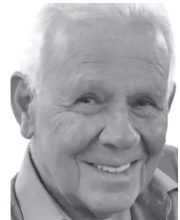The Pajaro Valley community recently learned about the tragic death of an Aptos High School teen on the school’s campus. This has led to outrage, grief and racialized commentary. During this critical time, trauma-fueled responses, reactionary behavior and near-sighted solutions can lead to collateral and unintended consequences that negatively impact youth.
Many of us as parents, alumni, concerned residents, advocates and students are working to provide places for healing and comfort. We’re working on meaningful data-driven, positive youth development and cultural strategies that can lead toward deep-seated transformation and comprehensive support for our youth. Additionally, we’re looking to build a pathway to safety that is rooted in our values including relational, cultural and restorative safety.
Research indicates that young people who grow up in marginalized, disenfranchised environments with limited resources are disproportionately exposed to violence, systemic racism and child abuse. Further, research substantiates that those young people show symptoms, triggers and trauma responses at and above the rate of returning war veterans. The inadequate investment to address social-emotional needs is recklessly insufficient and perpetuates harmful consequences for youth.
Locally, years of disinvestment, job loss, cultural assimilation, acculturation-related stress, ICE raids and NAFTA still disproportionately impact Pajaro Valley migrant families. If we add the components of multi-generational poverty, interpersonal violence, systemic racism, and put ourselves in the shoes of young people, we can only imagine what Pajaro Valley Unified School District (PVUSD) students experience.
The tragic death of the young man at Aptos High School highlights the needs of our youth. To be specific, there was a fight that broke out in which a student pulled out a knife on another student, which resulted in the loss of life. This is an all-too-familiar scenario where young men of color commit violence, get branded as thugs, vilified and stigmatized as “super predators,” fueling cycles of policing and incarceration without an honest dialogue or assessment of opportunities for genuine prevention. This is compounded by 15 months of isolation from each other, a decline in life-skill engagement and pro-social activities. We can’t police, arrest, punish or SRO our way out of this cycle.
As a forward-thinking community, we must equip young people with the life-long skills that will allow them to face life’s challenges, the tools to self-regulate, and trust that a community stands to support them in difficult times. This work begins with our youngest learners and follows them toward young adulthood. We can’t shame and punish teenagers into social conformity by locking them up. Teenagers act on impulse, with a prefrontal cortex that won’t fully develop until the age of 25. Let’s work to develop a community accountability plan focused on student success with a focus on relational safety on campus, through investing in cultural healing, mentorship and restorative spaces.
In 2019, PVUSD reported to the state 11 counselors for a student population of over 20,000 and no nurses, no psychologists or social workers. Aptos High School has just one counselor responsible for serving over 1,400 students. Just two years prior, in 2017, the district had 21 counselors and Aptos High School had nine counselors. Indeed, 2019 represents the lowest number of counselors over the past decade. The district has a ratio of one counselor to 1,828 students, fully seven times higher than the American School Counselor Association recommended ratio of one counselor to 250 students.
The policy choice here is not between police-patrolled campuses and neglect of legitimate safety and discipline; it is between an enforcement & criminalization approach to safety that science has proven to be ineffective and an evidence-based approach to safety that prioritizes mentoring, relationship-building, strong community norms and care for young people that produces real reductions in suffering and harm.
For students to truly thrive, their educational and socio-emotional needs must be met by those most qualified to meet those needs, like counselors, psychologists, and social workers. Young people are watching adult behavior, including their elected officials. Right now, the PVUSD Board of Trustees can model the kind of behaviors that align with developmentally appropriate responses that lean on what’s healthy, rather than what’s familiar.
Bernie Gomez is a Program & Leadership Assistant at the MILPA Collective. He is a native Chicano of Watsonville. His views are his own, and not necessarily those of the Pajaronian.










